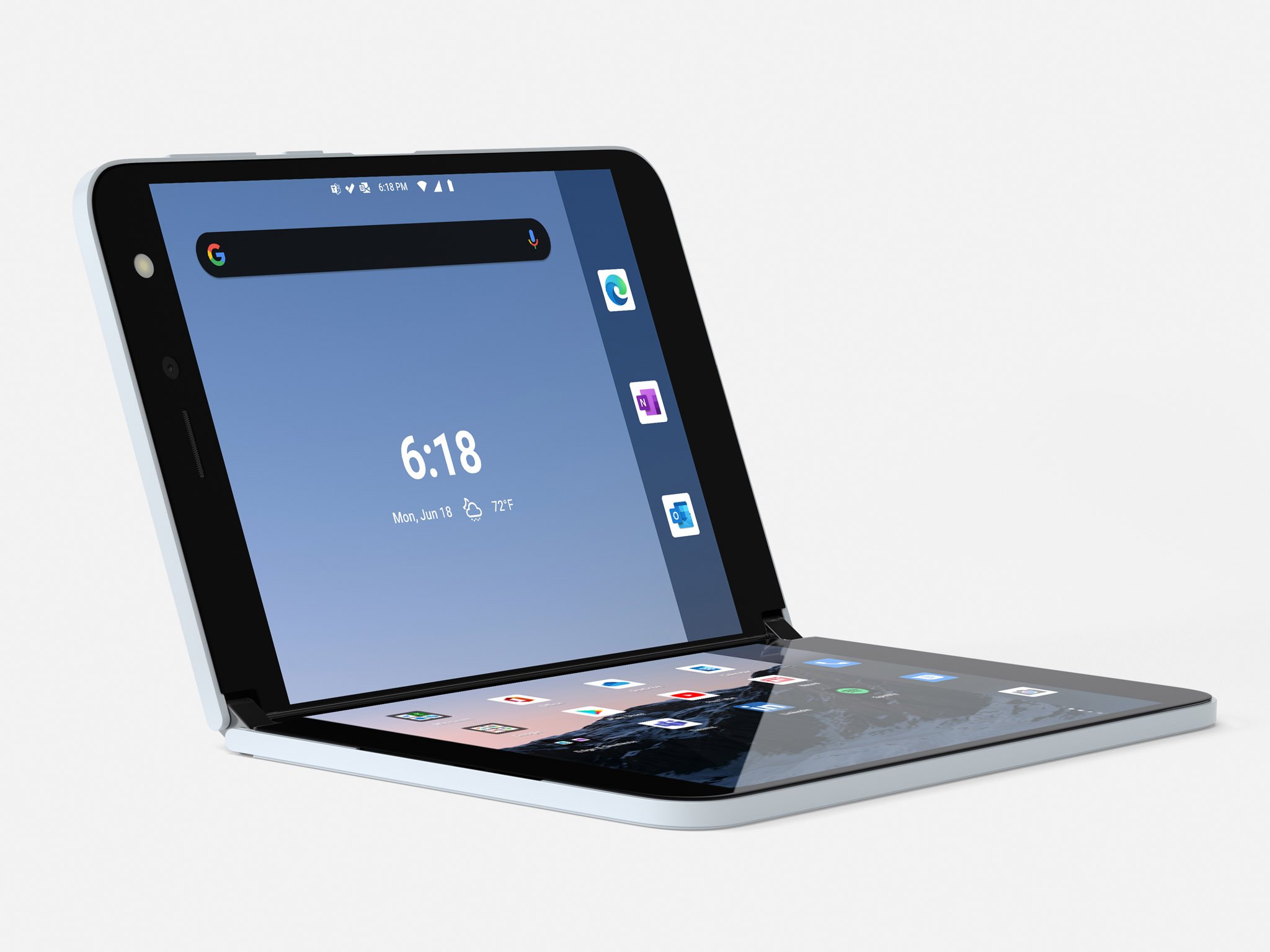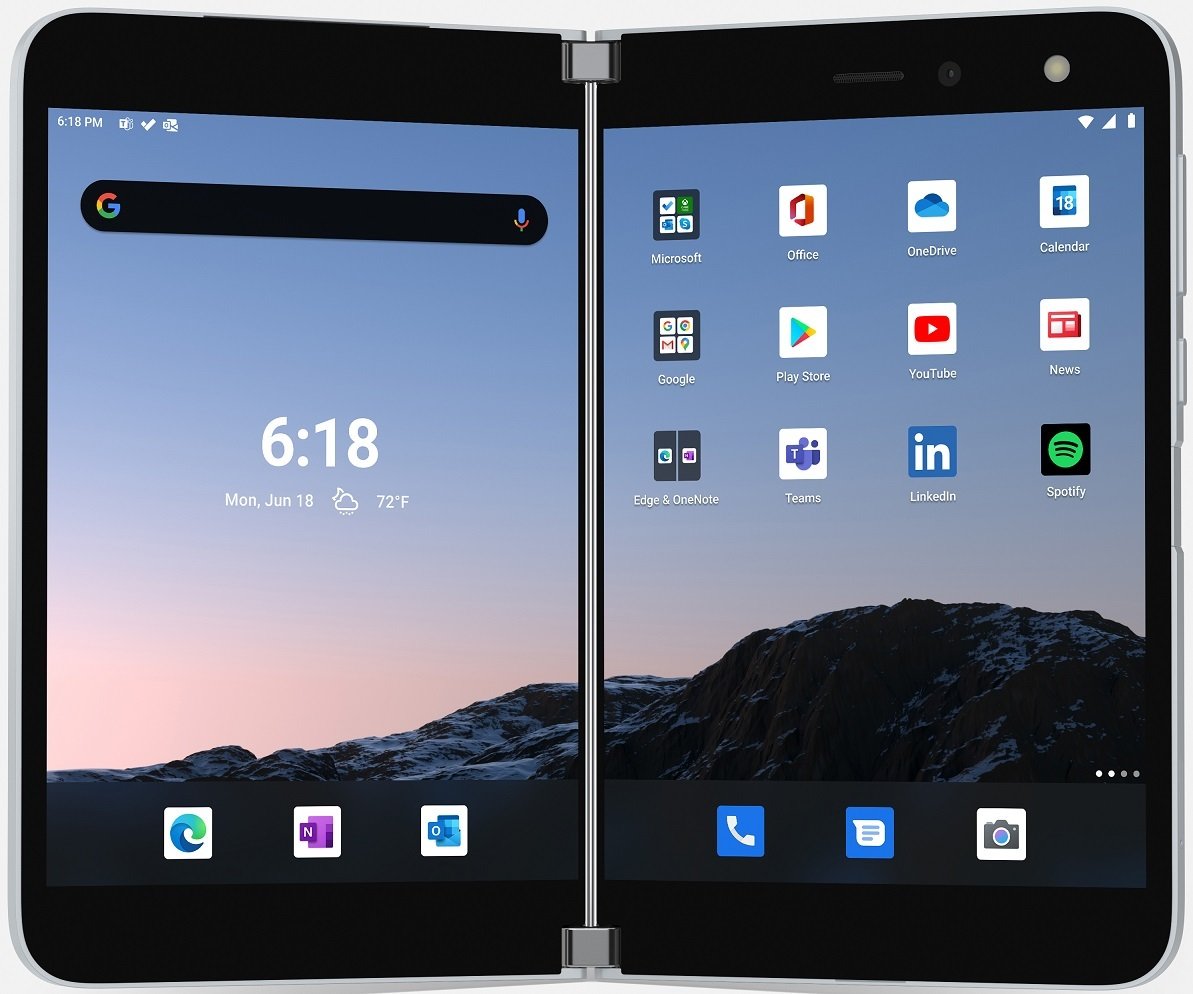Duo-take: Here's what the media is saying about Surface Duo

When Microsoft announced the price and release date ($1,400 and September 10) of the new Surface Duo earlier this week, reactions among Microsoft fans generally ranged from disappointed to incredibly excited. On one hand, Microsoft is bringing its familiar Surface design prowess to a new type of mobile productivity device. On the other, Surface Duo is a first-generation smartphone that's lacking in some key areas.
Among a lot of the media, there's been a decidedly optimistic tone when it comes to Surface Duo, despite its shortfalls. While Microsoft's new flagship might not stand up to something like the Galaxy Z Fold 2 in terms of raw specs, it's a decidedly focused product intended to deliver a very particular experience. And, for the most part, it's receiving kudos from the tech sphere for trying something new.
If you haven't had a chance to skim through the tens of thousands of words that have been written on it this week, here's a look at just some of the reactions from the media in the wake of the Surface Duo's launch.
Sam Rutherford, writing for Gizmodo:
Still, the Surface Duo has something a lot of other gadgets lack: vision. It feels like a phone that was designed with a mission instead of simply being a tech demo, and with Microsoft seemingly having gone all-in, it's a vision that could turn into a very enticing reality.
JR Raphael, writing for Computerworld:
But to focus entirely on those drawbacks right now is a mistake. The Surface Duo seems best viewed as a first step — an ambitious move toward creating a new kind of product category and a bold attempt at fleshing out the ever-expanding and increasingly platform-agnostic Microsoft ecosystem. It doesn't seem like a stretch to compare this beginning to the start of the primary Surface line, where the earliest model was reviewed as being intriguingly different and incredibly promising but not fleshed out enough to be worth buying.
Cherlynn Low, Engadget:
I didn't realize this until recently, but I've been waiting for Google and Microsoft to team up on a mobile-friendly productivity OS/software, and the Surface Duo's UI looks very promising. Well, based on the demos we've seen, anyway.https://t.co/u3RM0NycGgI didn't realize this until recently, but I've been waiting for Google and Microsoft to team up on a mobile-friendly productivity OS/software, and the Surface Duo's UI looks very promising. Well, based on the demos we've seen, anyway.https://t.co/u3RM0NycGg— Cherlynn Low (@CherlynnLow) August 12, 2020August 12, 2020
Tom Warren, writing for The Verge:
Be an expert in 5 minutes
Get the latest news from Android Central, your trusted companion in the world of Android
The real question will be how well Surface Duo, and devices like it, improve productivity on the go, and whether two mobile screens is truly needed. These devices will ultimately require some hardware advances to really pull off the vision. But if consumers agree with Microsoft, Samsung, and others that two screens are better than one then we're witnessing the future being built. If not, we're witnessing unique attempts to try and reshape mobile devices. At the very least, mobile phones are suddenly getting exciting again. As Panay would say, we're pumped to see where this all goes.
Harry McCracken, writing for Fast Company
I did get enough of a sense of the Surface Duo to come up with an initial impression that's pretty much a dumbed-down version of Panay and Nadella's lofty explanations of the device. With its two oversized screens and the multiple ways you can hold it for different sorts of work, it should be the best pocket-sized device ever designed for using Microsoft's Office apps, assuming bugs don't get in the way. That alone gives it a more coherent mission than many newfangled phones, which—even when they're cool—sometimes struggle to be something more than a brag-worthy novelty.
David Ruddock, Android Police:
https://twitter.com/RDRv3/status/1293623254934929408?s=20
Raymond Wong, writing for Input:
Clearly, if you're looking for a killer camera, the Duo is not going to be it (the lack of a camera bump is a telling giveaway). But if you're thinking about the Duo in the context of the strange COVID-19 world we live in, the transforming form factor — being able to have a phone that opens up into a tablet, that can run two apps at once, and connect seamlessly with Windows PCs — makes a lot of sense. More people are working from home, moving from room to room, from desk to sofa to bed, quickly shuffling inside and out. A transforming device that accommodates these behaviors is more sensible than before.
Mary Jo Foley, writing for ZDNet:
Microsoft is counting on users seeing the Duo as filling an untapped niche. But for people used to thinking about carrying no more than two devices -- usually a PC/tablet or phone -- where does the Duo fit? In its first iteration, with a seemingly mediocre 11 MP camera, an older Snapdragon 855 processor and a relatively heavy form factor (about half a pound), the Duo is not going to replace my Pixel 3XL Android phone. And with a total screen size when open of 8.1 inches, the Duo is just too small to replace my PC.
Emil Protalinski, writing for VentureBeat:
Microsoft isn't doing itself any favors by kneecapping Duo at the starting block, which I fear may hurt its successors, too. The good news is that the company didn't turn its Surface line into a billion-dollar business by throwing in the towel after a single generation. I await the inevitably poorly named Surface Duo 2.
Ian Sherr, writing for CNET:
For Microsoft, the Surface Duo is about trying to strike out with something genuinely new in an age where most phones look the same, and the ones that don't haven't taken off.For whatever criticisms you level at Microsoft, the Surface Duo is a type of device none of its peers are offering. Whether that's good or bad will be up to you.
Michael Fisher (aka MrMobile):
But at the same time, I'm not fully sold on the notion of dual-screen smartphones ... mostly because folding-screen devices can do most everything dual-screen ones can.https://t.co/9oPQvTSpG8But at the same time, I'm not fully sold on the notion of dual-screen smartphones ... mostly because folding-screen devices can do most everything dual-screen ones can.https://t.co/9oPQvTSpG8— Michael Fisher (@Captain2Phones) August 12, 2020August 12, 2020
Lisa Gade, MobileTechReview:
Only Microsoft can do this to me. I’m both exited by Surface Duo while feeling that 2018 is calling and wants its dual screen phone back. Snapdragon 855, no NFC, weak cameras at $1,400?! When LG dual screens have better specs for $500 less? But it looks so cool and its a Surface! pic.twitter.com/SDAJ47BI4TOnly Microsoft can do this to me. I’m both exited by Surface Duo while feeling that 2018 is calling and wants its dual screen phone back. Snapdragon 855, no NFC, weak cameras at $1,400?! When LG dual screens have better specs for $500 less? But it looks so cool and its a Surface! pic.twitter.com/SDAJ47BI4T— Lisa Gade (@lisagade) August 12, 2020August 12, 2020
The Surface Duo certainly has many avenues for improvement in further iterations, but it will be interesting to see whether Microsoft's first-generation device can live up to its lofty goals. For now, if you're intrigued and want to get your hands on a Surface Duo, it's available to preorder starting at $1,400 at Microsoft, Best Buy, and AT&T.

Two screens are better than one.
Microsoft delves into the future of foldables with an ambitious dual-screen device, featuring two ultra-thin 5.6-inch AMOLED displays bound by a 360-degree hinge. This pocketable inking-enabled Android smartphone marks the latest in the Surface lineup, geared for mobile productivity.

